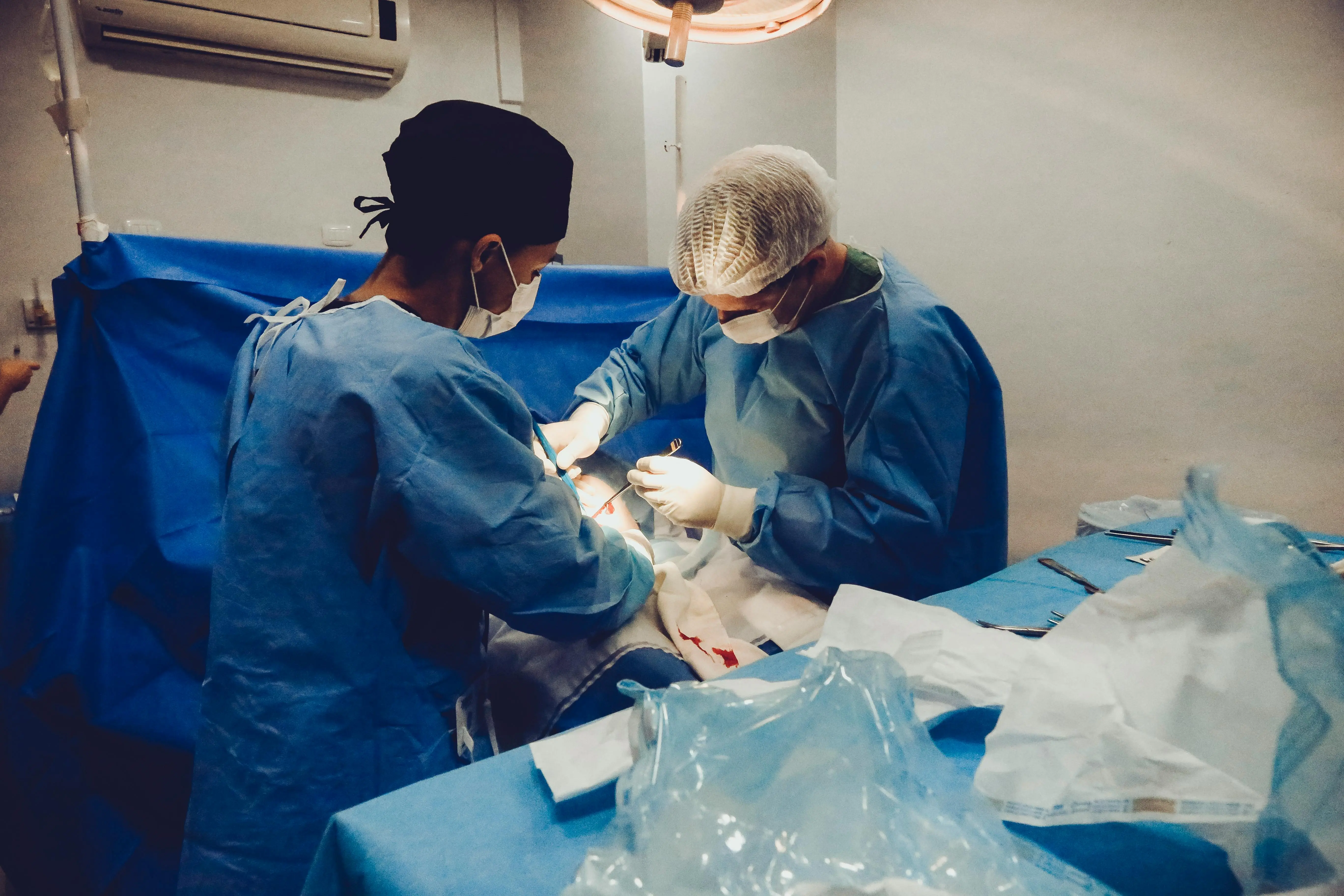Pre and post operative care is crucial for ensuring successful surgical outcomes and promoting quick recovery.

Blog
Comprehensive Guide to Pre and Post Operative Care
Pre and post operative care is crucial for ensuring successful surgical outcomes and promoting quick recovery. This guide will explore the essential aspects of preoperative and postoperative care, the benefits, and how to effectively manage each phase.
Preoperative care involves all the preparatory steps taken before surgery to ensure that the patient is in the best possible condition for the procedure. This phase is critical for minimizing surgical risks and enhancing recovery.
A comprehensive medical assessment is the first step in preoperative care. This includes a detailed evaluation of the patient's medical history, physical examination, and necessary laboratory tests. The assessment helps in identifying any underlying conditions that might affect the surgery or recovery.
Educating the patient about the surgical procedure, potential risks, and expected outcomes is an essential part of preoperative care. This helps in alleviating anxiety and ensures that the patient is well-prepared mentally and physically. Counseling sessions can provide guidance on lifestyle changes, such as quitting smoking or managing chronic conditions, which are crucial for optimal surgical outcomes.
Proper fasting guidelines must be followed to prevent complications during anesthesia. The patient may be advised to avoid food and drink for a specific period before surgery. Additionally, managing medications is crucial; some drugs may need to be stopped or adjusted before the procedure to reduce the risk of bleeding or other complications.
Postoperative care is the management of a patient after surgery, focusing on recovery and preventing complications. Effective postoperative care is vital for a smooth and quick recovery process.
Effective pain management is a cornerstone of postoperative care. Pain control not only enhances comfort but also facilitates mobility and reduces the risk of complications such as pneumonia or blood clots. Pain management strategies may include medications, nerve blocks, or alternative therapies like physical therapy.
Proper wound care is essential to prevent infections and promote healing. This involves regular dressing changes, monitoring for signs of infection, and maintaining proper hygiene. In some cases, antibiotics may be prescribed to prevent or treat infections.
Adequate nutrition and hydration are critical for recovery. A balanced diet rich in proteins, vitamins, and minerals supports tissue repair and strengthens the immune system. Patients should be encouraged to stay hydrated and follow any dietary guidelines provided by their healthcare provider.
Preparing for surgery involves several steps that ensure the patient is ready both physically and mentally. Proper preparation can significantly influence the outcome and speed of recovery.
Patients will receive specific instructions from their healthcare provider regarding what to do before surgery. This may include fasting, adjusting medications, and avoiding certain activities. Following these instructions carefully is crucial for minimizing risks during surgery.
It is important to arrange for post-surgery support in advance. This may include organizing transportation to and from the hospital, arranging for someone to stay with the patient during the initial recovery period, and preparing the home environment to accommodate any temporary limitations in mobility.
Surgery can be a stressful experience, and psychological preparation is important. Patients should address any fears or concerns with their healthcare provider and consider relaxation techniques such as deep breathing exercises, meditation, or talking to a therapist.
Healthcare providers play a critical role in both pre and post operative care, ensuring that patients receive comprehensive and coordinated care throughout their surgical journey.
A multidisciplinary approach involving surgeons, anesthesiologists, nurses, and other healthcare professionals is essential for effective pre and post operative care. Each team member contributes their expertise to optimize the patient's health before surgery and facilitate a smooth recovery process.
Continuous monitoring and regular follow-up appointments are crucial components of postoperative care. Healthcare providers track the patient's progress, manage any complications, and adjust the care plan as needed to ensure optimal recovery.
Ongoing patient education and support are vital for successful pre and post operative care. Healthcare providers should offer clear instructions, answer questions, and provide resources to help patients manage their recovery effectively.
Advancements in medical technology and practices continue to improve the quality of pre and post operative care, enhancing patient outcomes and recovery experiences.
Minimally invasive surgical techniques, such as laparoscopic and robotic surgery, have revolutionized operative care. These techniques result in smaller incisions, reduced pain, and quicker recovery times compared to traditional open surgeries.
Enhanced Recovery After Surgery (ERAS) protocols are evidence-based guidelines designed to improve surgical outcomes and accelerate recovery. ERAS protocols encompass various aspects of care, including pain management, nutrition, and early mobilization, resulting in shorter hospital stays and improved patient satisfaction.
Telemedicine and remote monitoring technologies enable healthcare providers to closely monitor patients' recovery from the comfort of their homes. These technologies allow for timely interventions, better patient engagement, and improved adherence to postoperative care plans.
Pre and post operative care are integral parts of the surgical process, ensuring that patients are well-prepared for surgery and supported throughout their recovery. By understanding the importance of comprehensive care, the benefits of proper preparation and recovery strategies, and the advancements in medical practices, patients and healthcare providers can work together to achieve the best possible surgical outcomes. The evolving landscape of pre and post operative care, driven by innovations and patient-centered approaches, continues to enhance the quality of care and improve the overall surgical experience for patients.
Preoperative care involves all the preparatory steps taken before surgery to ensure that the patient is in the best possible condition for the procedure. This phase is critical for minimizing surgical risks and enhancing recovery.
Postoperative care is the management of a patient after surgery, focusing on recovery and preventing complications. Effective postoperative care is vital for a smooth and quick recovery process.
Pre and post operative care are integral parts of the surgical process, ensuring that patients are well-prepared for surgery and supported throughout their recovery. By understanding the importance of comprehensive care, the benefits of proper preparation and recovery strategies, and the advancements in medical practices, patients and healthcare providers can work together to achieve the best possible surgical outcomes. The evolving landscape of pre and post operative care, driven by innovations and patient-centered approaches, continues to enhance the quality of care and improve the overall surgical experience for patients.
Need Personalized Health Guidance?
Get expert advice tailored to your specific health needs from our qualified healthcare professionals.





